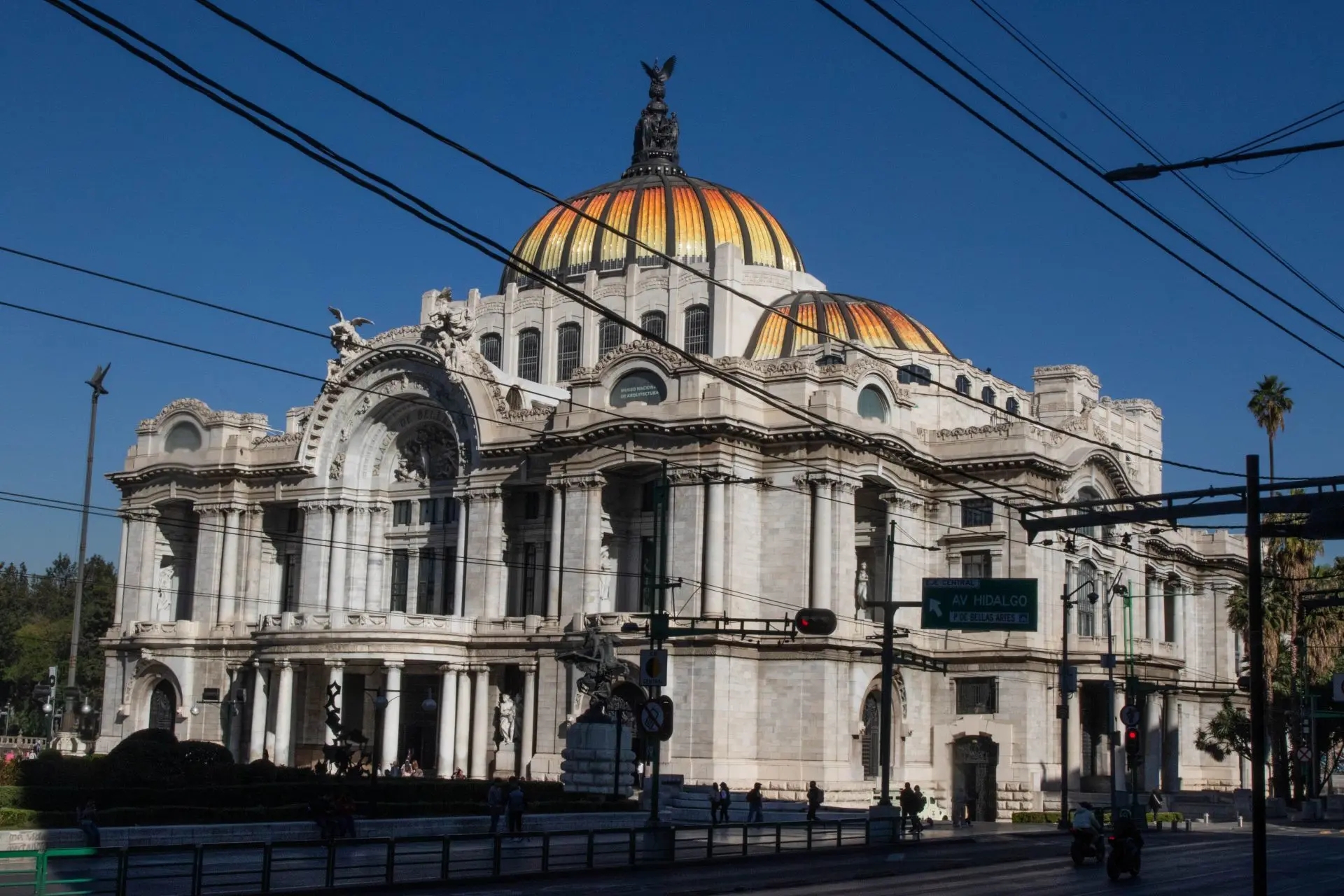
The Poetry Recital in Native Languages, “Recital de Poesía en Lenguas Originarias”, was performed for a full house at the Main Hall of the Palacio de Bellas Artes on March 15, where the historic venue opened its doors for the first time to literature written in Indigenous languages.
The performance was a part of the National Meeting of Women Writers in Indigenous Languages in celebration of the Year of Indigenous Women (2025), organized by the Ministry of Culture of the Government of Mexico and the National Institute of Fine Arts and Literature (INBAL) through the National Coordination of Literature (CNL).
The ten creators, each reading three original poems, were:
The event also featured a musical performance of Canto a la Raíz, Un Segundo, and La Llorona, in the Mixe language and in Spanish by soprano María Reyna, accompanied by pianist Joaquín Garzón Rivera and violinist Rodrigo Garzón Avedaño.
On behalf of the country’s main cultural institutions, the General Director of INBAL, Alejandra de la Paz Nájera, acknowledged the role of women in the diversity of thought, language and ways of making art and literature.
“Today, the Palace of Fine Arts welcomes the voices of ten writers in Indigenous languages from the north, center and south of the country, who will share with us the symbolism, sounds and poetic universes that exist in their languages and territories,” she said.
The celebration is part of an ambitious program by the institutions that form part of the Ministry of Culture of the Government of Mexico to showcase all disciplines and knowledge that nourish the creative plurality of Mexico, of which much is owed to Indigenous women throughout the country.
“With these activities, we join in the recognition of the Year of Indigenous Women, who, as creators, share their knowledge and creativity with us,” she said.
The head of INBAL emphasized that Mexico has 68 active native languages, whose defense, safeguarding and dissemination “are fundamental to having a complete and comprehensive image of what we are as a nation and to safeguard this incredible and powerful history that fills us with pride”.
National Coordinator of Literature of the INBAL, Nadia López García, stated that it is a day to name and celebrate the diversity of languages, knowledge and ways of creating literature.
“May this poetic display be an opportunity to continue sharing the word, worldview, resistance and joy that we feel on this historic day, since for the first time, the Main Hall of the Palace of Fine Arts has been opened for literature in the country’s Indigenous languages,” she said.
Indigenous languages have been passed down from generation to generation, especially by “the women, who together have woven their blood and thoughts with the wind, who resist through their mouths and their hearts, and to whom today we have listened, recognizing the linguistic diversity found in the norhtm center, and south of out country.”
López García pointed out that years ago it was unthinkable that Indigenous languages would be heard in places other than homes, kitchens, villages and streets, and therefore recognized that the Government of Mexico had named 2025 the Year of Indigenous Women, “because it is we, the Indigenous women, who have defended the territory and the language for many years”.
Rita Margarita, one of the attendees at the event said, “We are in the Year of Indigenous Women thanks to President Claudia Sheinbaum Pardo who is uplifting us, giving us this privilege of being in these places of global importance. We were always the last, the unknown. But now they know us and value us. I think this is only the beginning. Let’s continue moving forward”.
Related: Dahlia de la Cerda: The Aguascalientes Writer Finalist for the Prestigious Booker Prize